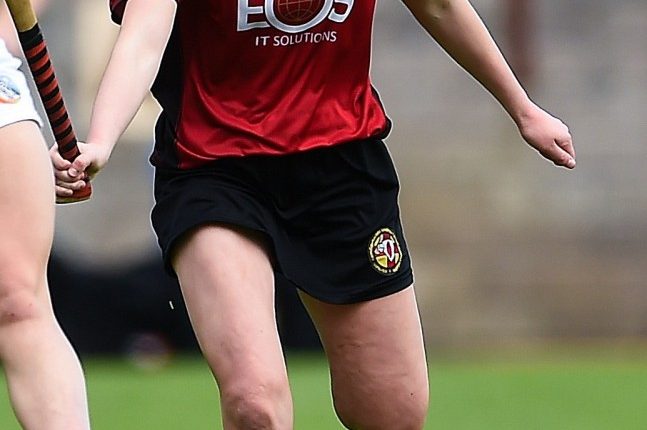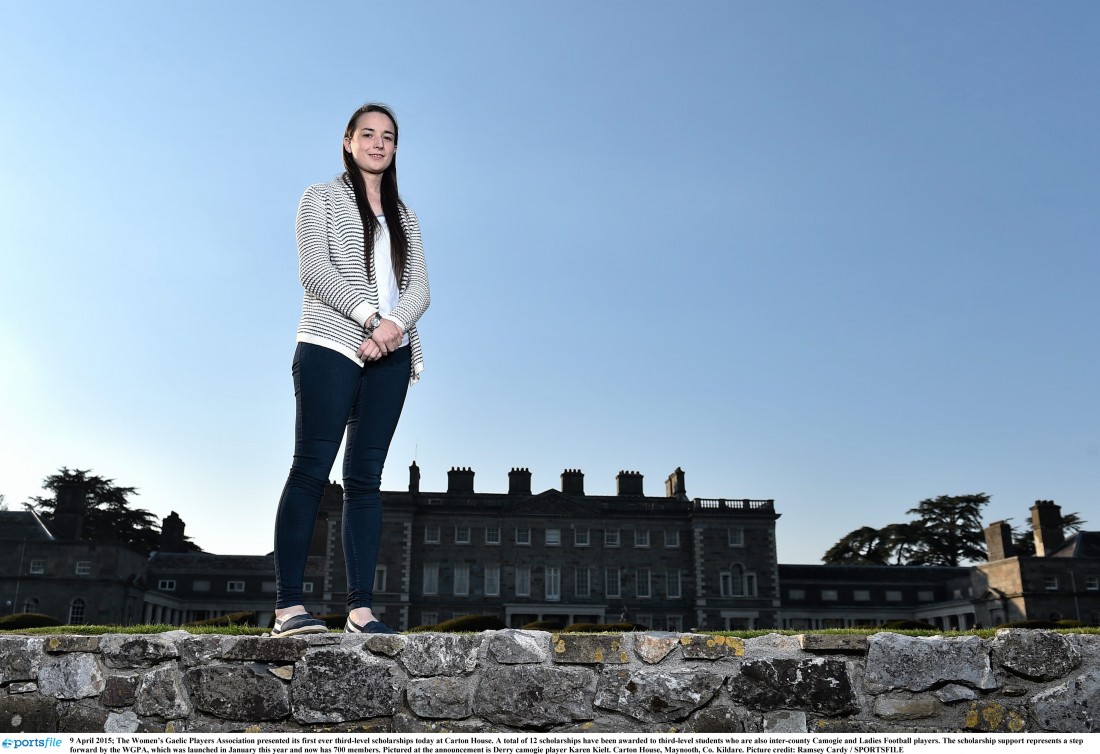The GAA are planning a survey across all four codes to ascertain the state of coaching in the GAA. We have asked three Camogs what their thoughts are on the matter
Karen Kielt (Derry)
What are the current strengths of camogie coaching at club and county level.
At county level teams are receiving grants from WGPA – so now we can get S&C, physio, access to GPS, match stats etc, when maybe even five years ago this wasn’t an option as teams couldn’t afford this.
From a coaching perspective managers and teams now have the appropriate resources for their team.
Coaching workshops and CPD opportunities in coaching are available.
A lot of my coaches/ managers have been ex county players, so they know the expectation players have.
What are the weaknesses of camogie coaching at club and county level.
Lack of managers/ coaches in Ulster camogie particularly, as Ulster is predominantly football province, it’s difficult to get managers.
I can only speak on behalf of my own club Kilrea, but the girls play camogie and the boys play football, so the men maybe feel like they can’t contribute to coaching in the camogie club because they never played hurling, which is totally understandable.
Previously the manager wasn’t just the manager, he was the trainer, the kitman, the manager, the S&C coach, he was a jack of all trades. So it’s an extremely tough job.
Is camogie coaching lagging behind the other codes and what changes do you think could be made to improve camogie coaching at club and county level?
To be honest I can only speak on behalf of the teams I’ve played for, so I can’t speak on behalf of the entire camogie association, there are some brilliant coaches out there, throughout schools, universities, club then county teams.
To look at the grand scheme of things, there’s no Ulster camogie team in the Senior camogie championship at county level, so it’s easy to point the finger and say they must be getting better coaching down south. But then you look at Slaughtneil they have contested the last four camogie senior All Irelands, winning three of them, which is incredible. Those coaches are all from Ulster and all have worked with intercounty hurling teams (Woody McKinley, Mickey Glover).
I think in Ulster the problem would be the less coaches you have, the less “top” coaches you are gonna have. So a lot of camogie players won’t get exposed to top quality coaching until they are maybe in a county set-up or go to Secondary Grammar school.
How can the survey of coaching that the GAA are planning help camogie coaching?
I suppose it’s the biggest ever survey that has been conducted in Irish sport, across all levels of gaelic games, so it will help build an accurate picture of coaching across all Gaelic games. As a result of the survey they will then be able to build a profile of all the different types of coaches that we have across Gaelic games and try to understand their needs.
Developing more coaches, and developing good quality coaching can only help the camogie association.
Maeve Connolly (Antrim)
What are the current strengths of camogie coaching at club and county level.
There has been a huge change in the physical aspect of camogie training over the last few years, gym programmes to aid strength and conditioning have played an integral role in the development of players and therefore the game. This has had an impact on the intensity of the game especially in regards to skills like tackling. Another big emphasis that has been apparent is the development of speed at our trainings, drills being done at high pace and high intensity to take this forward into matches.
What are the weaknesses of camogie coaching at club and county level?
I think a big thing is the lack of coaches wanting to get involved with camogie teams. Luckily within my own club team this hasn’t really been an issue and management are usually from within our own parish so they have a genuine passion and interest in the team but with county over the years there have been struggles to even get coaches / mentors interested in taking the team.
The current lockdown situation has hit the county team hard as we had started a very successful league campaign under a new management team made up of former county hurlers and the coaching was very good.
I think in the past camogie was always just training that replicated hurling training programmes instead of being specific to females whereas the game and physical training has to be more tailored to females to ensure players are reaching their potential and also for injury prevention. I was unfortunate to have torn my cruciate ligament when I was 18 so I think I have always been big into injury prevention but for example there were three girls on our county team last year that tore their cruciates in camogie matches so surely there is work needed to be done in that area to help to try to eliminate these problems.
Is camogie coaching lagging behind the other codes and what changes do you think could be made to improve camogie coaching at club and county level.
I would say a general view among camogie players would definitely be that there is more time, effort and money put into developing the male side of the GAA. If I were to compare how the county hurling team operates to the county camogie team there would be crazy comparisons, this isn’t so much in regards to coaching though it’s the extra add ons that players would benefit from.
To improve, I think there is still a lot more could be developed in camogie through specialist training from professionals that work in female sport. Even though the situation has improved I still think we could learn so much from other professional female sports and how their training is geared towards female physique.
How can the survey of coaching that the GAA are planning help camogie coaching?
I think the outcomes of the survey will be interesting to see in regards to camogie and what percentage of coaches are professionally trained to coach females.
It will also be interesting to compare the differences in male and female coaches.
Aoife Keown (Down) 
What are the strengths of Camogie coaching at club and county?
Thankfully I have had nothing but positive coaching experiences at both club and county level. I think this past year our County training sessions have been brilliant. The management team are all well experienced and each bring different styles and drills to the set up. Trainings are always fast moving and well structured so no standing about especially when Marty (Mallon) is leading training.
At my club Castlewellan, our coaching has always of a good standard. We have been fairly successful having only been set up 12 years ago. Four of us have been homegrown and now play for the county senior team. All of our coaches have been through coaching courses and have played either hurling or camogie themselves.
What are the weaknesses of coaching at club and county level?
I really don’t have anything bad to say about any coaching I’ve had. I would say it’s maybe more difficult for our club coaches to provide a high standard of coaching at times due to other factors e.g. smaller numbers and having to cater for a wider range of abilities too.
Is Camogie coaching lagging behind other codes and what changes do you think could be made to improve Camogie coaching?
With playing county football also, I think it’s fair to say that both codes provide a high level of coaching. I definitely wouldn’t say Camogie is lagging behind.
Both codes have been successful throughout the years and with the management teams in place at the minute, hopefully there is more to come for both Down Camogie and Ladies Football.
How can the survey of coaching help Camogie coaching?
It will give an insight into the coaching standards throughout all codes and in turn highlight any areas that possibly need working on as well as providing reassurance on what we are already doing here in Down.
Receive quality journalism wherever you are, on any device. Keep up to date from the comfort of your own home with a digital subscription.
Any time | Any place | Anywhere












